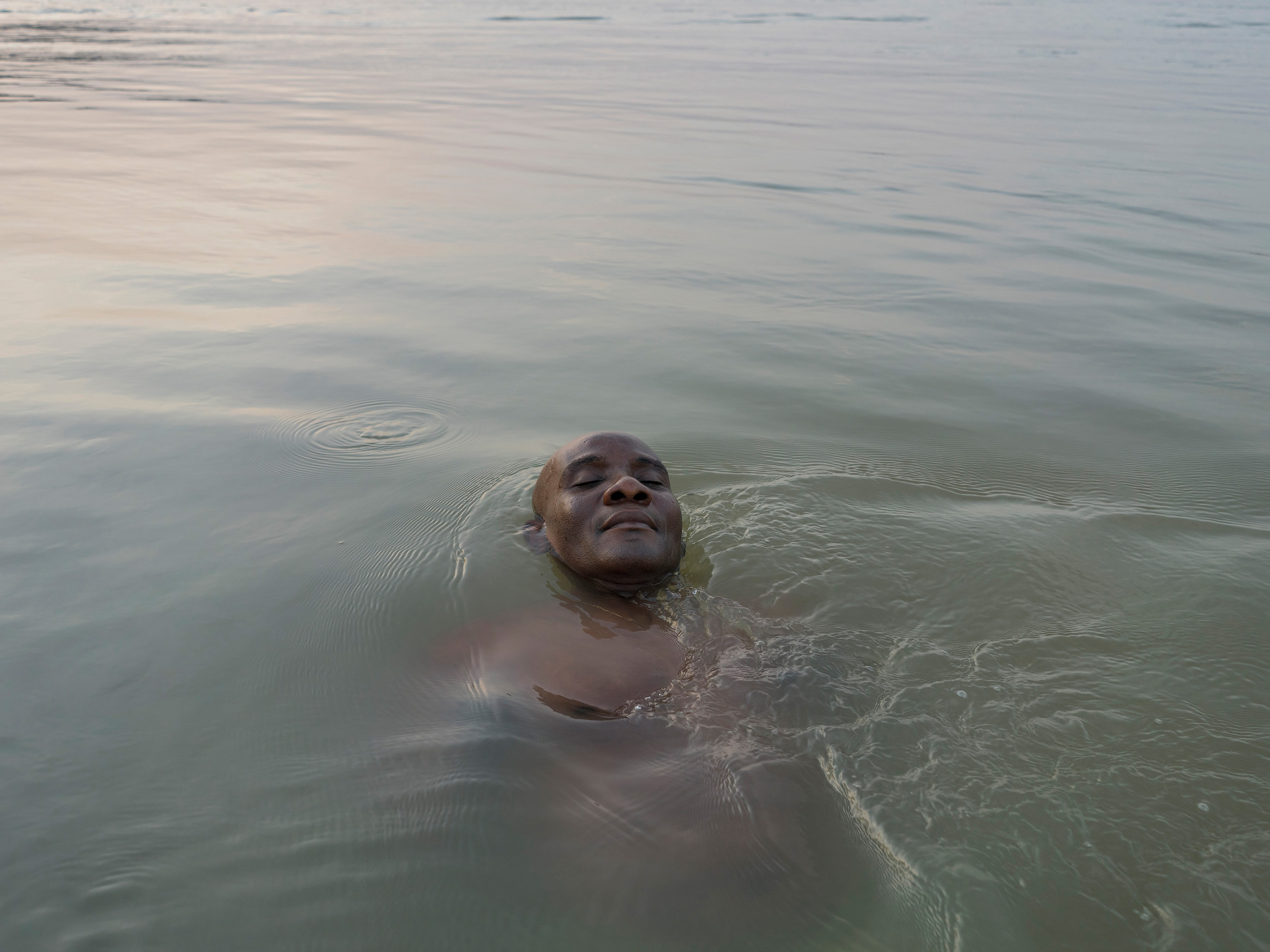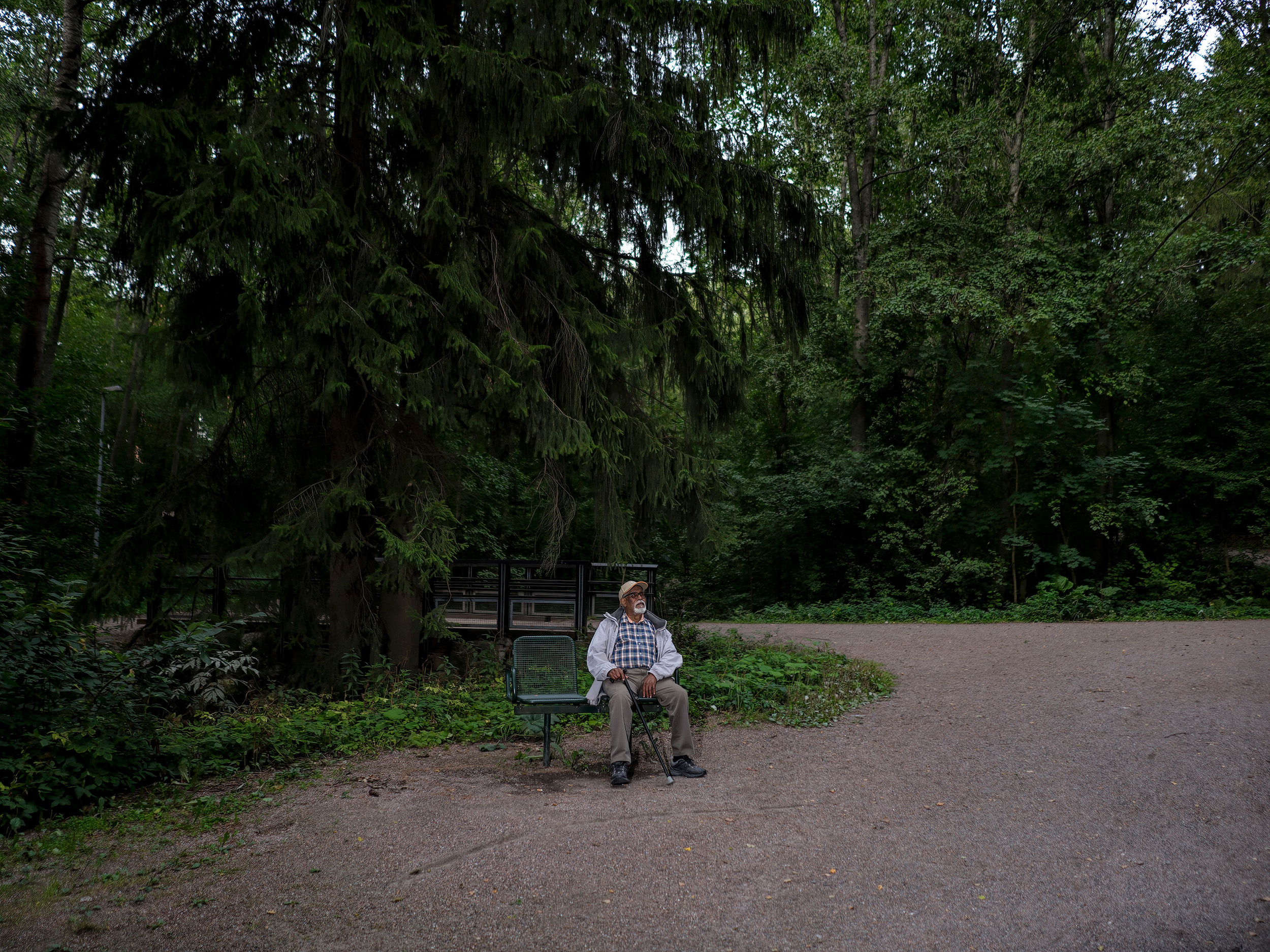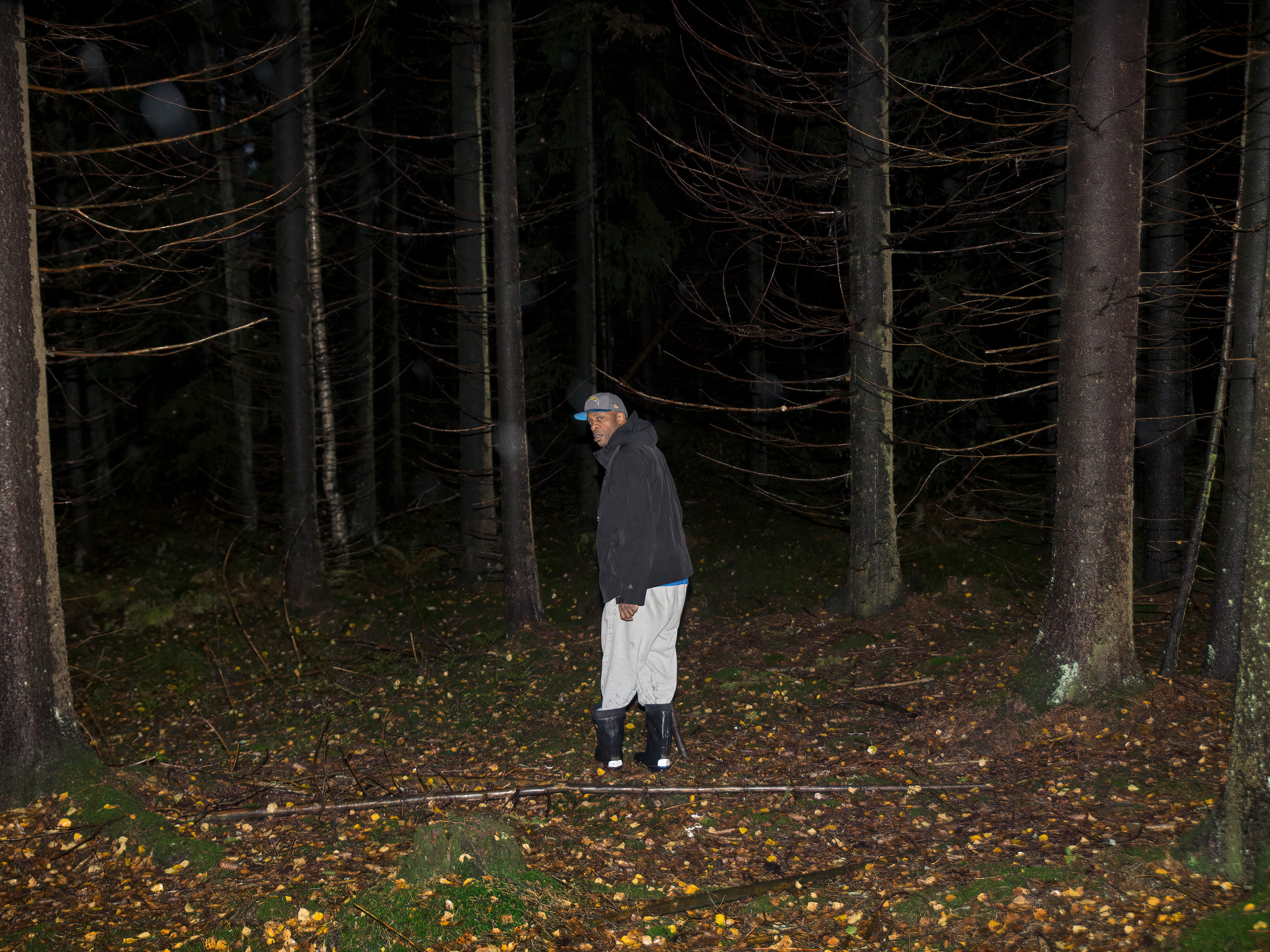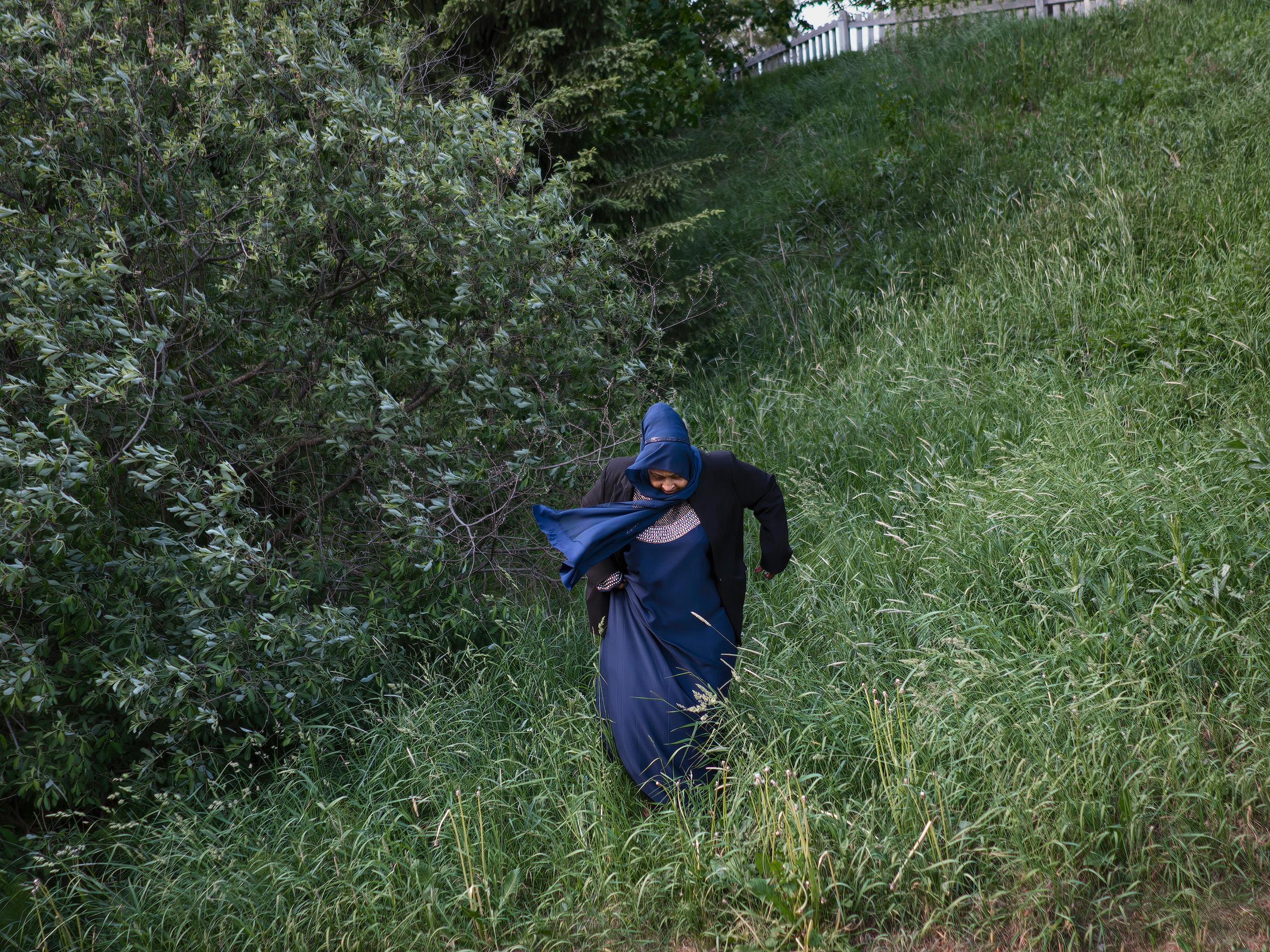A collaboration with writer Maryan Abdulkarim, the work is, ultimately, about presence and the act of belonging
“Thank you for your fearlessness” reads the final line of the project text. “And for the sacrifices you made for those that came after you. For us.”
This is the sentiment shared by Finnish-Nigerian image-maker Uwa Iduozee and writer Maryan Abdulkarim, in their collaborative book project, They Walked on Water. Developed over two years and exhibited in-part at this summer’s Helsinki Biennial, the project ruminates on the experience of those who immigrated to Finland between 1950-1990: the “trailblazers” who arrived from the US, the UK, Somalia, Sudan, Ethiopia, and Nigeria. Many are the same generation as Iduozee’s parents.
“We would often have conversations about our past with our parents”, Iduozee reflects, “about how differently our lives had panned out”. But beyond discussions held in the close-knit community of Afro-Fins, Iduozee was struck by the reductive dialogue around Black people in Finland, a history originating in 1899, the year Rosa Emilia Clay became the first person of African descent to claim Finnish citizenship. “There is a tendency to erase people’s stories,” Iduozee laments, especially when those stories lack the “newsworthiness” demanded of mainstream media. His instinct was to take the opposite emotional tack. “We weren’t inclined to look for the more sensationalist narratives”, Iduozee recounts. “We wanted to concentrate on the middle ground – the ‘normal’ experience – that we hadn’t heard growing up.”
Conversations between Iduozee and Abdulkarim had been brewing for half a year before they took the plunge and reached out to their network of friends and family. Many were immediately eager to lend their contributions. “[They were] happy to live through their experiences with us,” Iduozee remembers. Not guided by drama or incident, Iduozee and Abdulkarim spent time getting to know each of their nine participants day-to-day, even accompanying two individuals on their personal travels from Finland to Nigeria. From research, to shooting and editing, it was a process of “relinquishing control” and “trial and error”.
Still, precision and forethought lies central to the success of this project. It was important for Iduozee to operate with consistency throughout, taking a consciously “mindful” stance which – when in Nigeria as a foreigner – avoided “photographing in an eroticising way”. His authorship is neutralised, contexts and geographies rendered ambiguous. In one image, a figure floats in milky water, seemingly renewed in its opaque embrace. In another, a woman is spellbound against the scarlet and indigo of an evening sky – eyes closed, solitary. Yet soon narratives emerge – the placid surface of images broken with flowing rivulets of personal narrative; details of lived experience glinting through the gauze of the everyday.
From a dark woodland, one of his subjects turns to face the flare of Iduozee’s flash – he is Chauncey, it transpires, foraging for mushrooms. Nature for him is a “reprieve”, a “safe space” free of human gaze, that “takes you in and accepts you in as it would anyone else”. Then we meet Khadra, windswept in the long summer grass. It is the first week of Ramadan and it is already the afternoon – Iduozee captures her as a figure of strength, selflessness and perseverance, emblematic of her role as the matriarch of her family.
As long-time friends, They Walked on Water is Iduozee and Abdulkarim’s first joint project. The value of collaboration was immediately plain – from the “extra pair of eyes” to the critical element of storytelling, gathered through in-depth interviews (mostly by Abdulkarim). “There were questions I might not have asked because I was so engulfed in the visuals,” Iduozee admits, conceding further that he “wouldn’t have done the stories justice” without this written component. The project is also Iduozee’s first documentary series. His background in photojournalism saw him on a steady trajectory from “raw” factuality to a more “meditative” aesthetic.
Still, certain themes persist: personal narrative, the everyday, and a search for an understanding of Blackness. Questions of “how certain decisions and environments influence how we view ourselves in a larger context”, he describes. Yet his approach here is more circumspect, informed by the realisation that each of his participants’ stories were “very different – and what we wanted to convey wasn’t the state of their current lives, but the larger histories of these people”. His process became slowed, his glance more considered, such that “when the moment presented itself… I would be receptive towards it, rather than compulsively documenting everything”.
This act of “being present” in the moment speaks not only to Iduozee’s process but also to the project’s conceptual ground. The work is, ultimately, about presence – about the act of belonging in the world, about feeling the closeness of a place despite its great physical distance, and about visibility and representation. Yet there is an active process at play, too. They Walk on Water speaks not only to “being present” in an environment, but to the experience of “navigating that reality”, and “re-evaluating” one’s expectations.
They Walk on Water allowed Iduozee to tilt his lens up above the everyday life of his participants, to the realm of their hopes and dreams; and then back down to earth, in a “reconstitution of dreams… realising that myths were myths”. We have all had unrealistic expectations, Iduozee notes – whether graduating college with improbable notions of adulthood, or migrating half-way across the world with unfounded visions of a new world. Crucially, the project is about those who have come to terms with reality. A life lesson for us all, he surmises: “to take what is given and make the best of it”.
Fantasies may be fragile, hopes precarious, but on occasion expectations are exceeded. When Iduozee’s father arrived in Finland, he had sent news to friends back home in Nigeria of this strange new land. It was winter, and several of them had taken a journey, on foot, over the frozen sea. “They walked on water!,” he gasped in awe. Sheer, inconceivable magic; an act of fearlessness; the stuff of dreams.
They Walked on Water by Uwa Iduozee is on show at the Helsinki Biennial until 26 September 2021.




